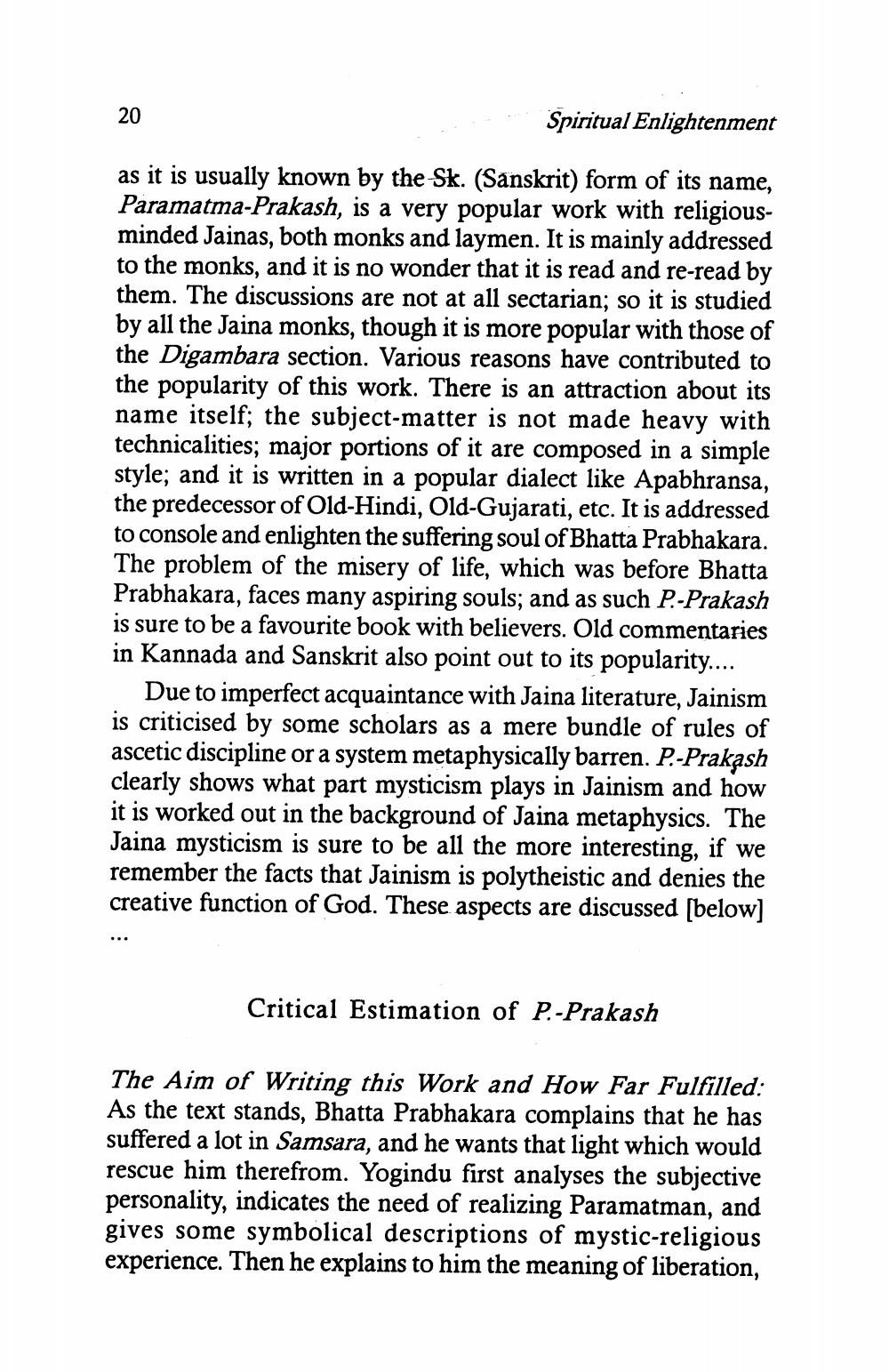________________
Spiritual Enlightenment
as it is usually known by the Sk. (Sanskrit) form of its name, Paramatma-Prakash, is a very popular work with religiousminded Jainas, both monks and laymen. It is mainly addressed to the monks, and it is no wonder that it is read and re-read by them. The discussions are not at all sectarian; so it is studied by all the Jaina monks, though it is more popular with those of the Digambara section. Various reasons have contributed to the popularity of this work. There is an attraction about its name itself; the subject-matter is not made heavy with technicalities; major portions of it are composed in a simple style; and it is written in a popular dialect like Apabhransa, the predecessor of Old-Hindi, Old-Gujarati, etc. It is addressed to console and enlighten the suffering soul of Bhatta Prabhakara. The problem of the misery of life, which was before Bhatta Prabhakara, faces many aspiring souls; and as such P.-Prakash is sure to be a favourite book with believers. Old commentaries in Kannada and Sanskrit also point out to its popularity....
Due to imperfect acquaintance with Jaina literature, Jainism is criticised by some scholars as a mere bundle of rules of ascetic discipline or a system metaphysically barren. P.-Prakash clearly shows what part mysticism plays in Jainism and how it is worked out in the background of Jaina metaphysics. The Jaina mysticism is sure to be all the more interesting, if we remember the facts that Jainism is polytheistic and denies the creative function of God. These aspects are discussed [below]
Critical Estimation of P.-Prakash
The Aim of Writing this Work and How Far Fulfilled: As the text stands, Bhatta Prabhakara complains that he has suffered a lot in Samsara, and he wants that light which would rescue him therefrom. Yogindu first analyses the subjective personality, indicates the need of realizing Paramatman, and gives some symbolical descriptions of mystic-religious experience. Then he explains to him the meaning of liberation,




